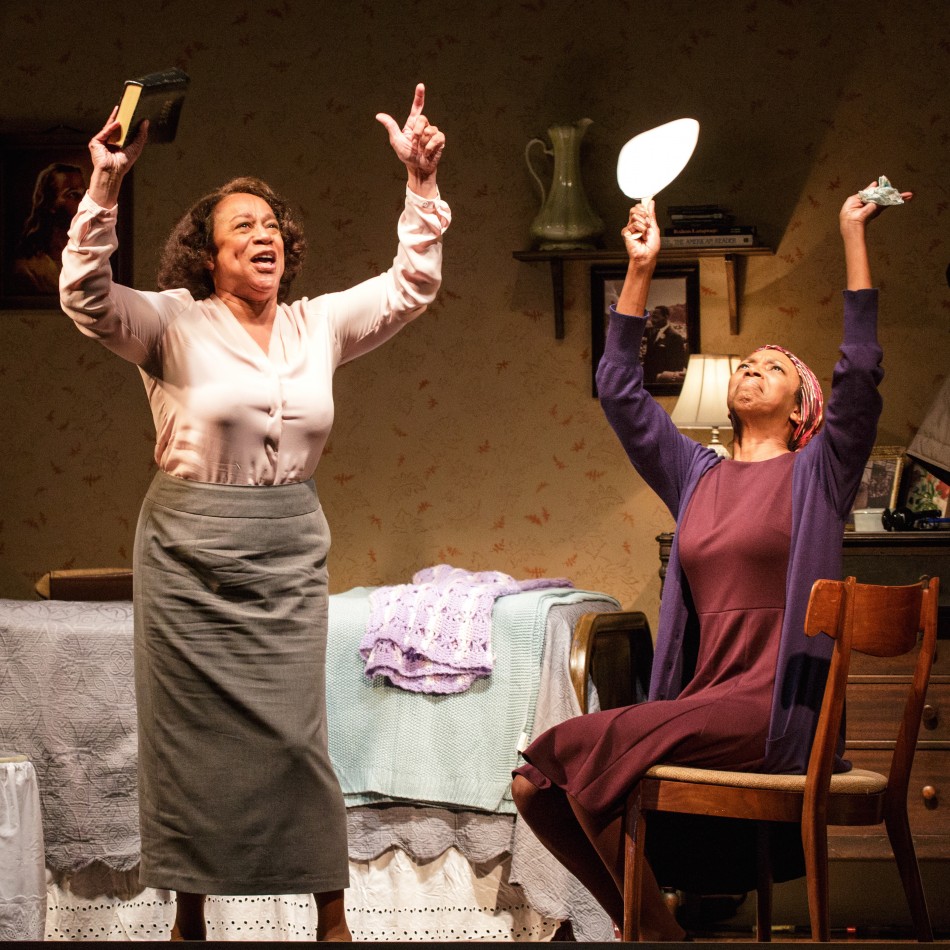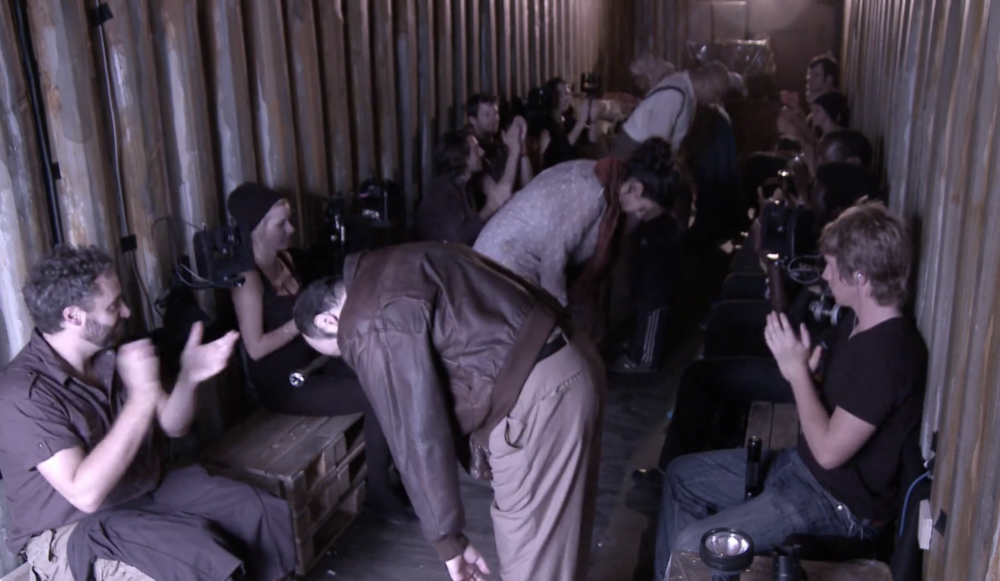by Carol Rocamora
Few classics pose as many challenges as Henrik Ibsen’s Peer Gynt. A formidable five-act dramatic poem, it was one of Ibsen’s first works, never intended for performance. Its daunting content includes forty scenes, dozens of characters, and a story line with many locales, alternating between fiction and folklore, reality and fantasy. Its original epic-scale production in 1876 featured music composed by Edvard Grieg. Given these imposing factors and more, it’s rarely produced on contemporary stages.
All the more reason, then, to relish the admirable, absorbing production of Peer Gynt now playing at Classic Stage Company. John Doyle has not only directed it – he’s also adapted it himself, focusing on the element that clearly fascinates him the most – the story’s charismatic central character.
Doyle’s striking minimalist style is well-known to Broadway audiences. He’s applied it to musicals with dazzling results (Sweeney Todd, Company The Visit, The Color Purple). Peer Gynt is the first non-musical that Doyle has directed at CSC (after Passion and Allegro), and it’s both a surprising and welcome choice. Doyle knows how to strip a work down to the core. “It’s about how you get to the essence,” he explains, “to get out the way of the story and let it breathe.”
So Doyle has compressed Ibsen’s folktale in less than two uninterrupted hours and ten scenes, with an ensemble of seven actors playing multiple roles. He’s reconfigurated the tiny CSC space, with the audience surrounding David Arsenault’s bare, raised platform. As the tale (in prose and verse) unfolds, the actors sit on the platform’s edge, making their entrances and exits. (Two actors with violins play Dan Moses Schreier’s original music.)
Peer Gynt is, in Doyle’s vision, is a fairy-tale-like “Seven Ages of Man” story, culminating in the final moment when he must measure his life’s meaning and worth. When we first meet young Peer in Scene One, he’s a daredevil and a braggart, regaling his mother with fantastical stories of riding a flying stag through the skies. His mother scolds him for his wild imagination, recklessness, and grandiose delusions. Scene Two finds Peer at a wedding, where he meets Solveig, a virtuous young maid. But instead of pursuing her, he gets drunk and kidnaps the bride, ravishes her and then vanishes.
But his mother can’t pursue him, because he’s descended into the fantastical mountain kingdom of the trolls. There, the troll king gives him a life lesson: “Be yourself!” Emboldened, Peer journeys on to pursue his dream of becoming “Emperor” of the world, pursued by the memory of Solveig. He traverses continents, becomes rich, but loses most of his money and gives the rest away. Finally, a ship bears him home to his own funeral, where he meets a “button moulder” (aka the undertaker), who says his soul will be melted down along with all the other elements of the world. His head hooded in a black shroud, he negotiates his way into the Hereafter.
Doyle’s fantastical Peer Gynt is a Odyssey-like journey to self-realization. At one point, Peer visits an insane asylum, where the Doctor anoints him “Emperor of Self.” What does that mean, the play asks? Does a man make choices on how he lives his life, or he ruled by destiny? In a theatre season where other protagonists – from Shakespeare’s Pericles to Miller’s John Proctor – are struggling with similar questions, Peer’s parallel journey is illuminating.
To tell this richly metaphorical and philosophical tale with no set and no props (save for money and buttons littering the stage) is a remarkable accomplishment, requiring considerable artistic skill. Doyle is aided by an able cast, featuring Gabriel Ebert as Peer, whose naked torso and outstretched arms remind me of da Vinci’s Vitruvian Man, at the center of his universe. (Hamlet’s speech “What a piece of work is a man” also comes to mind).
Peer Gynt is a challenging ride – and that’s what makes it so worthwhile. “My invaluable tool is the audience’s imagination,” Doyle says.
Expect more thought-provoking, soul-searching theatre at CSC, when – after a distinguished decade under Brian Kulick – Doyle takes over as artistic director in the fall.
Ibsen’s Peer Gynt, directed/adapted by John Doyle, at Classic Stage Company, 136 East 13 Street, New York, www.classicstage.org






















